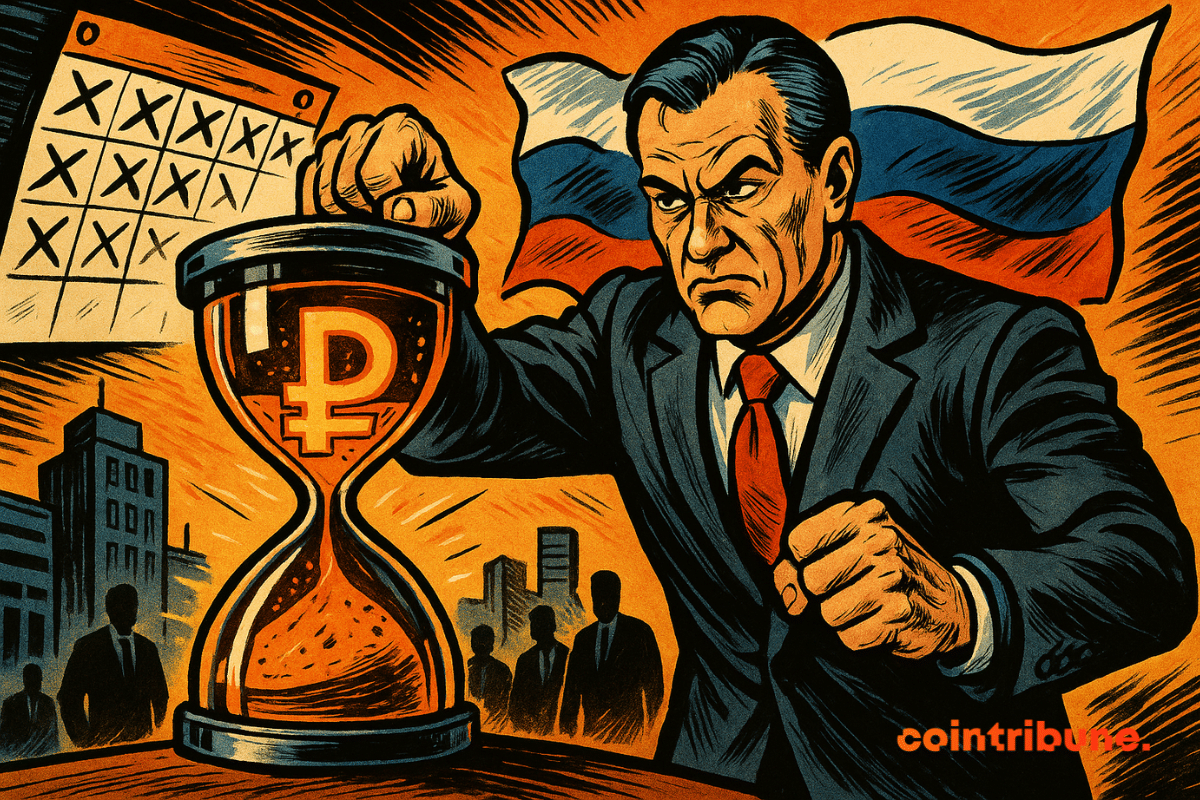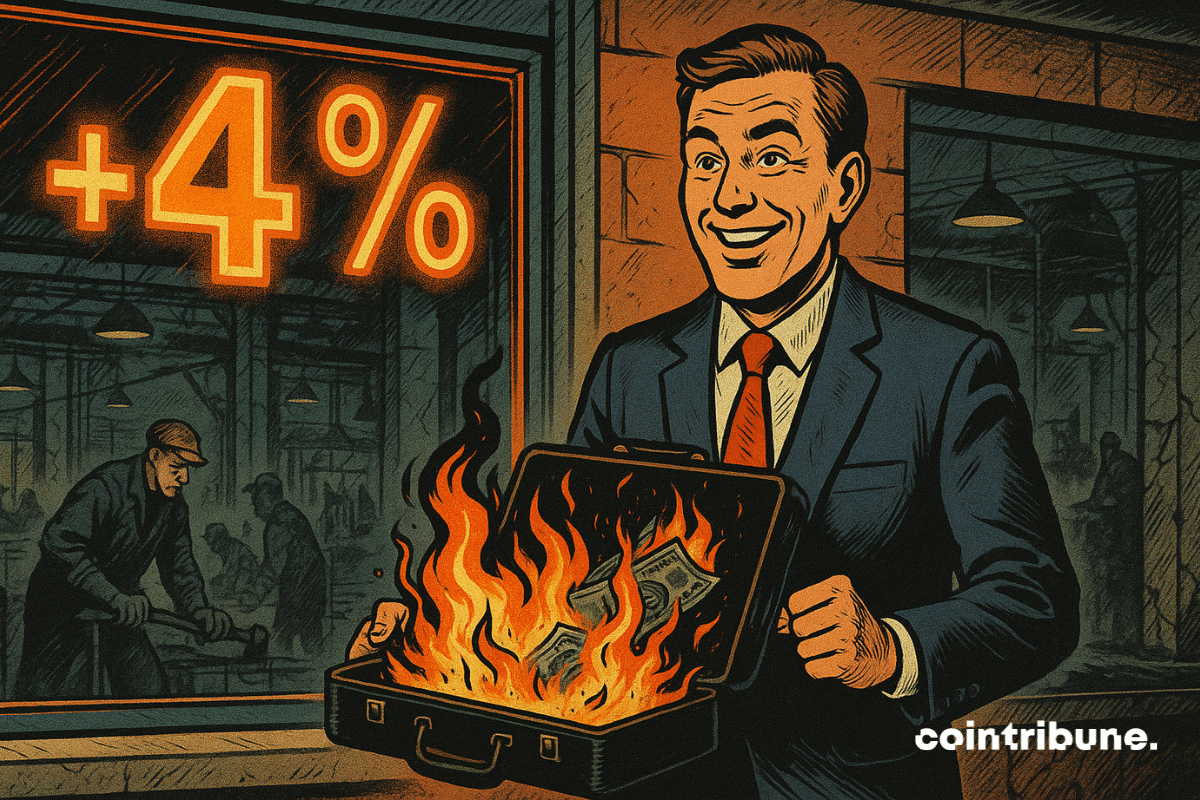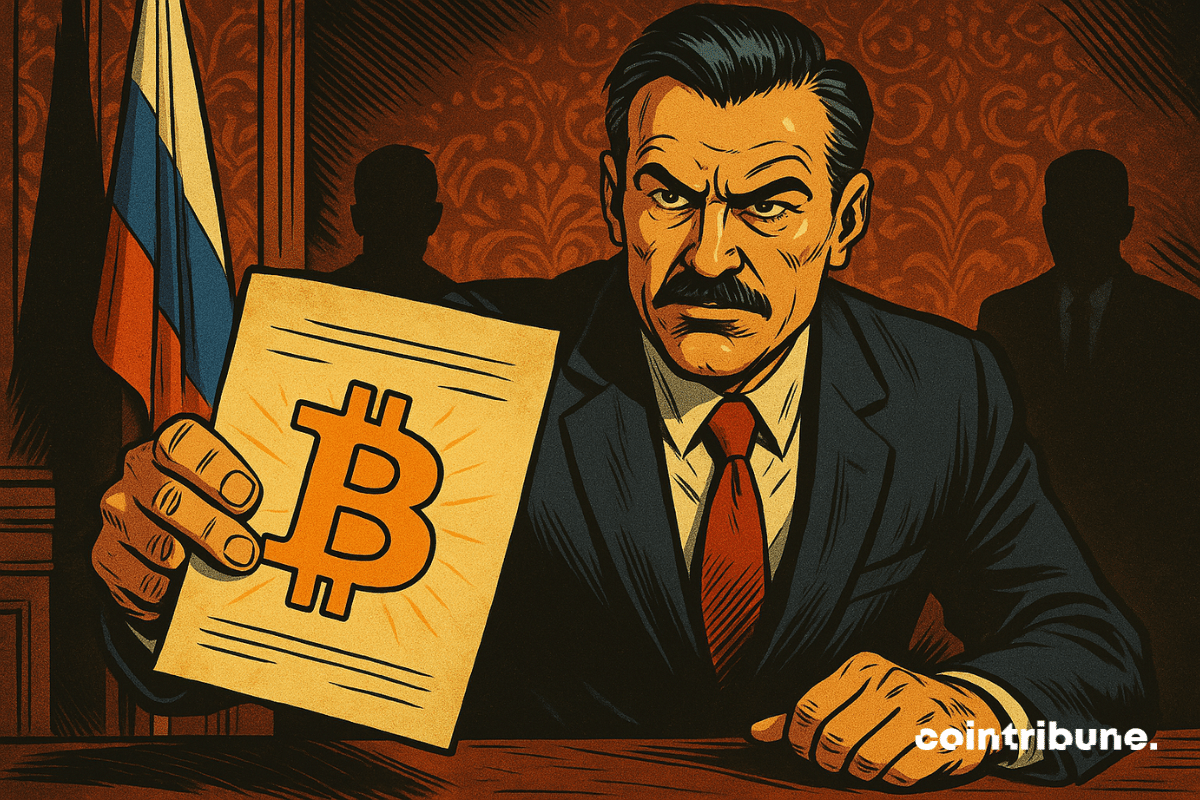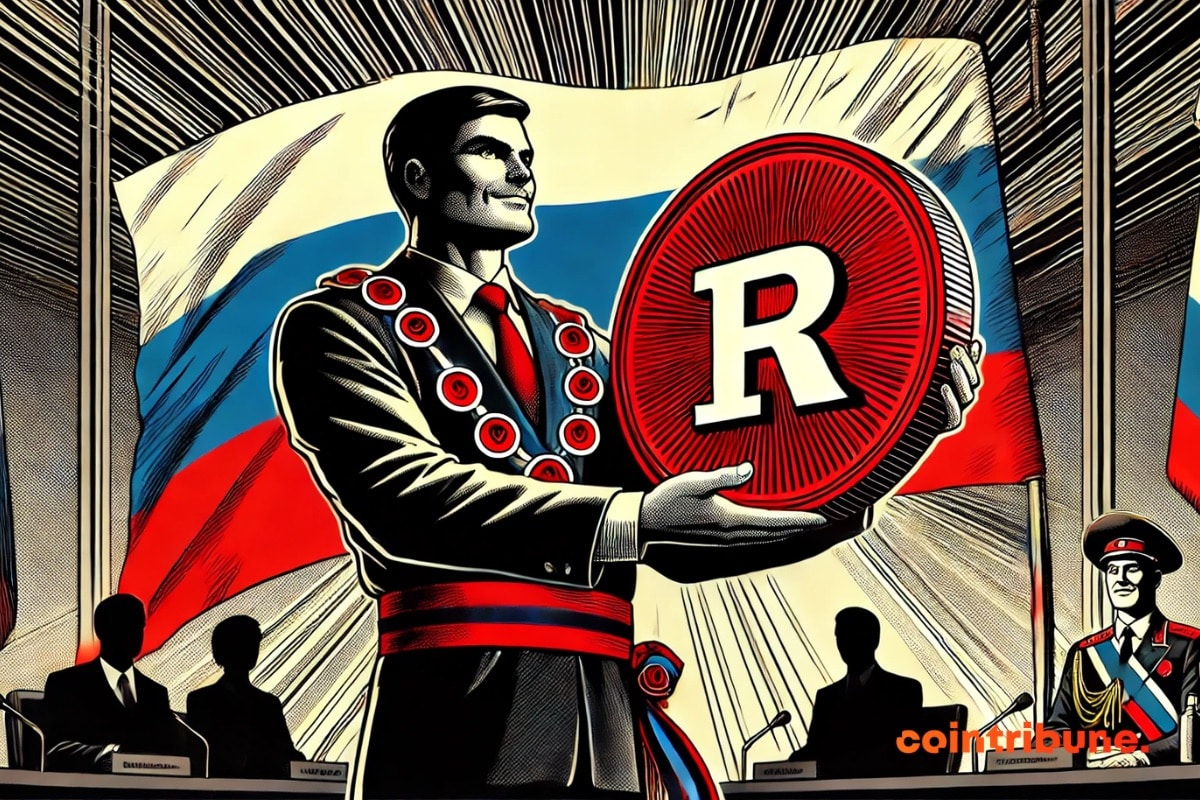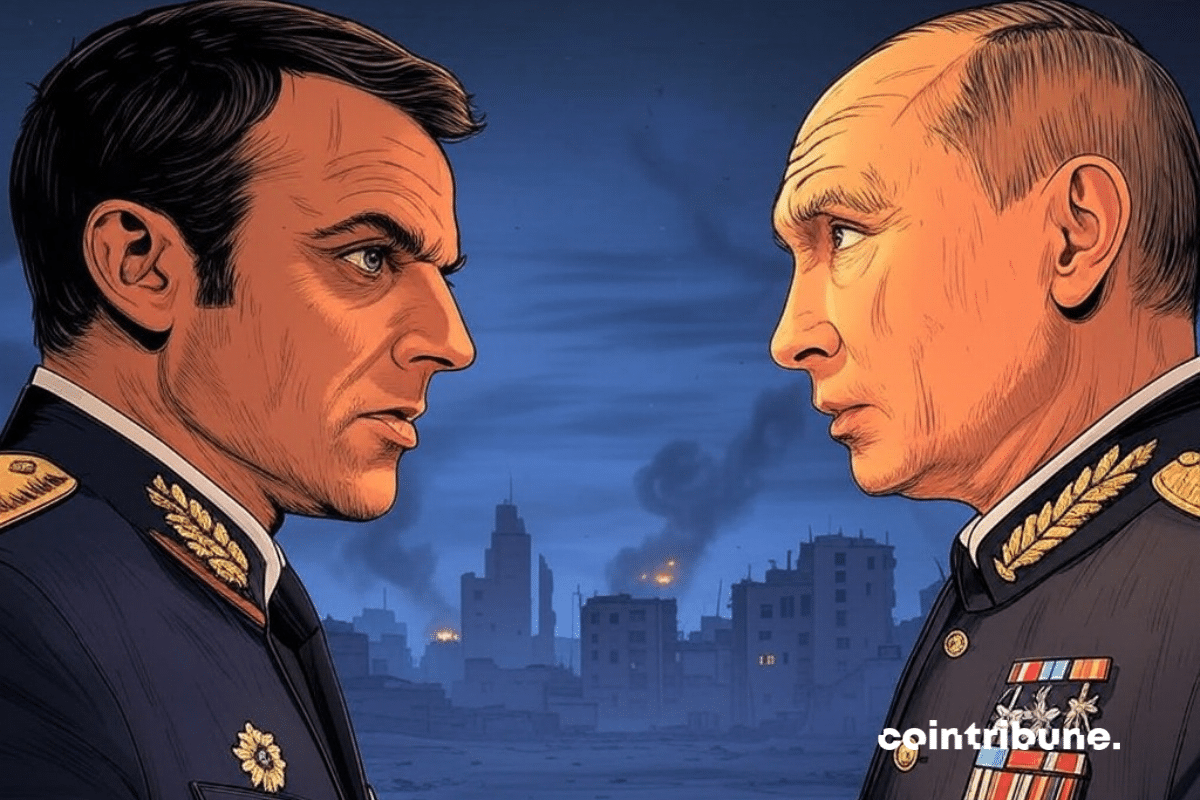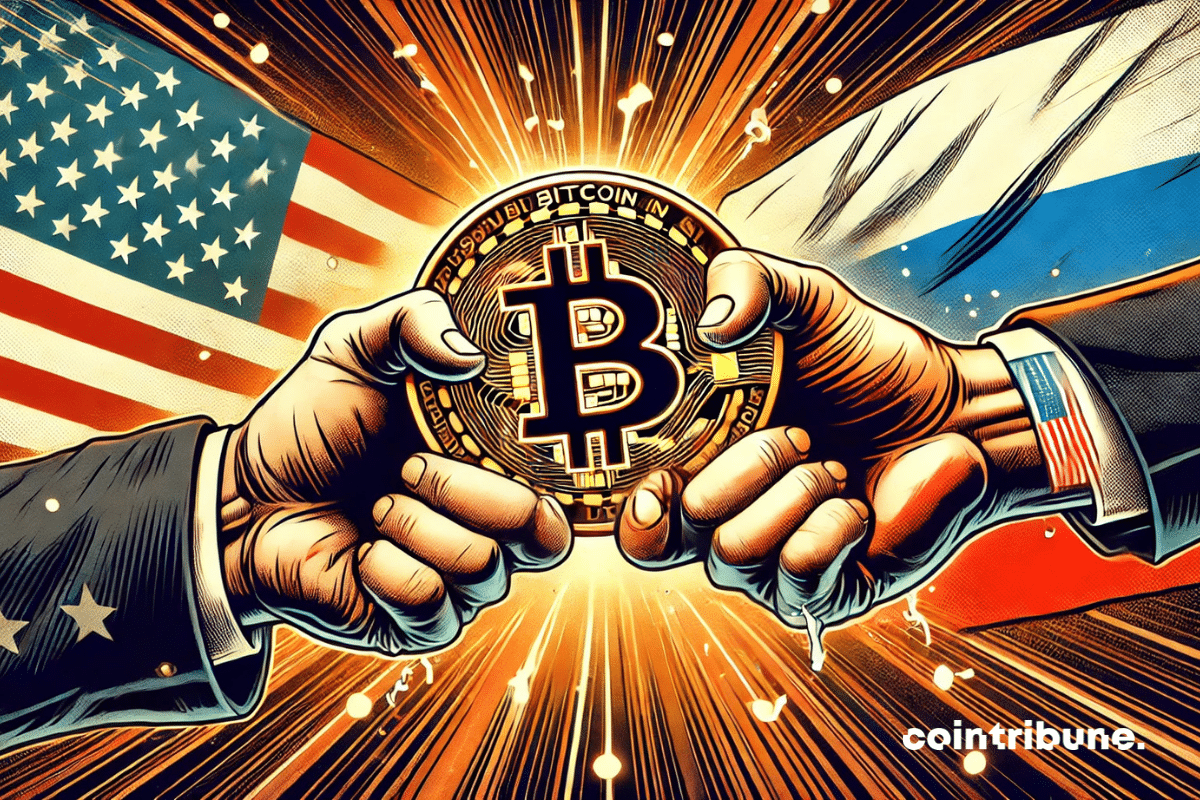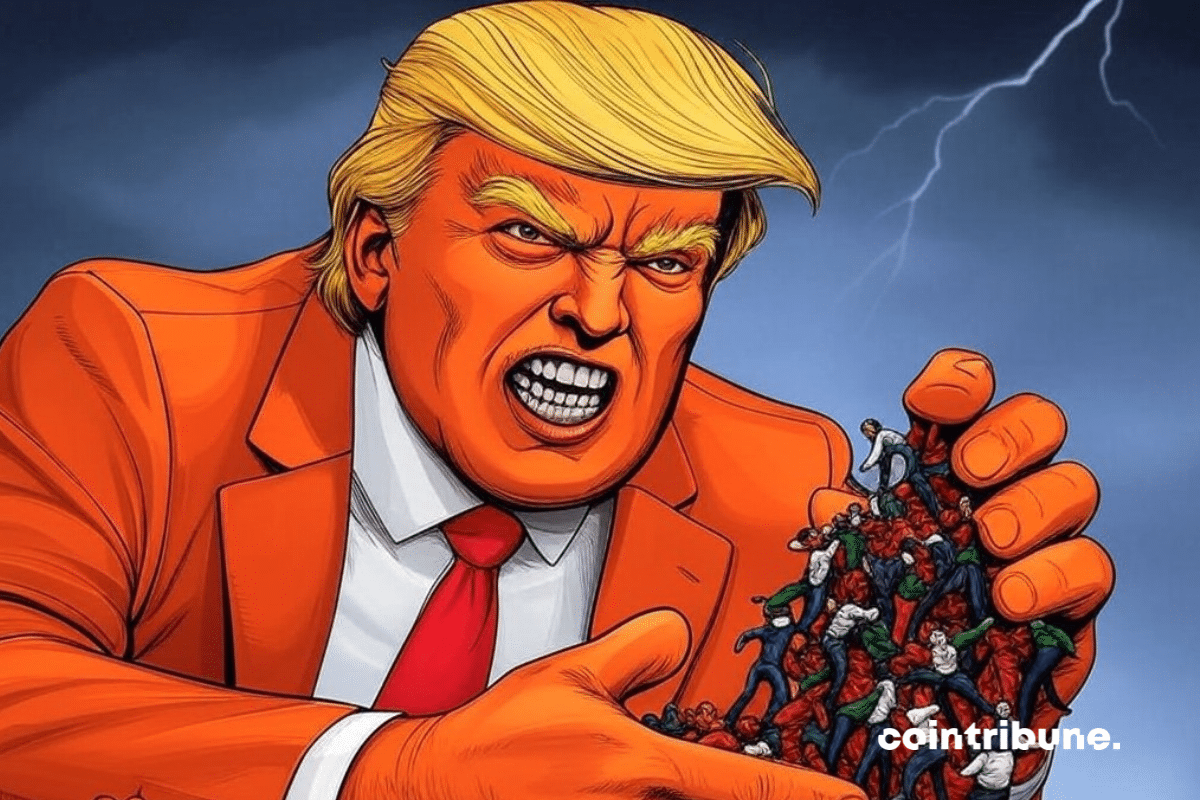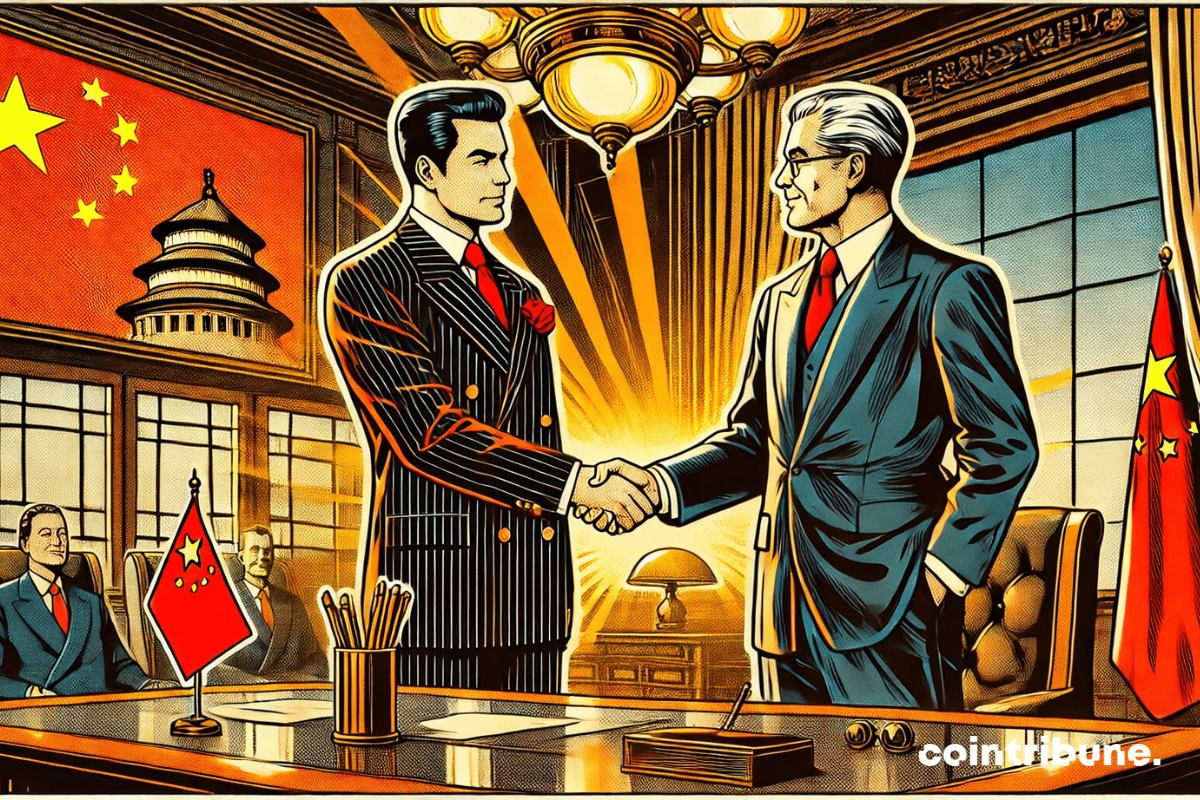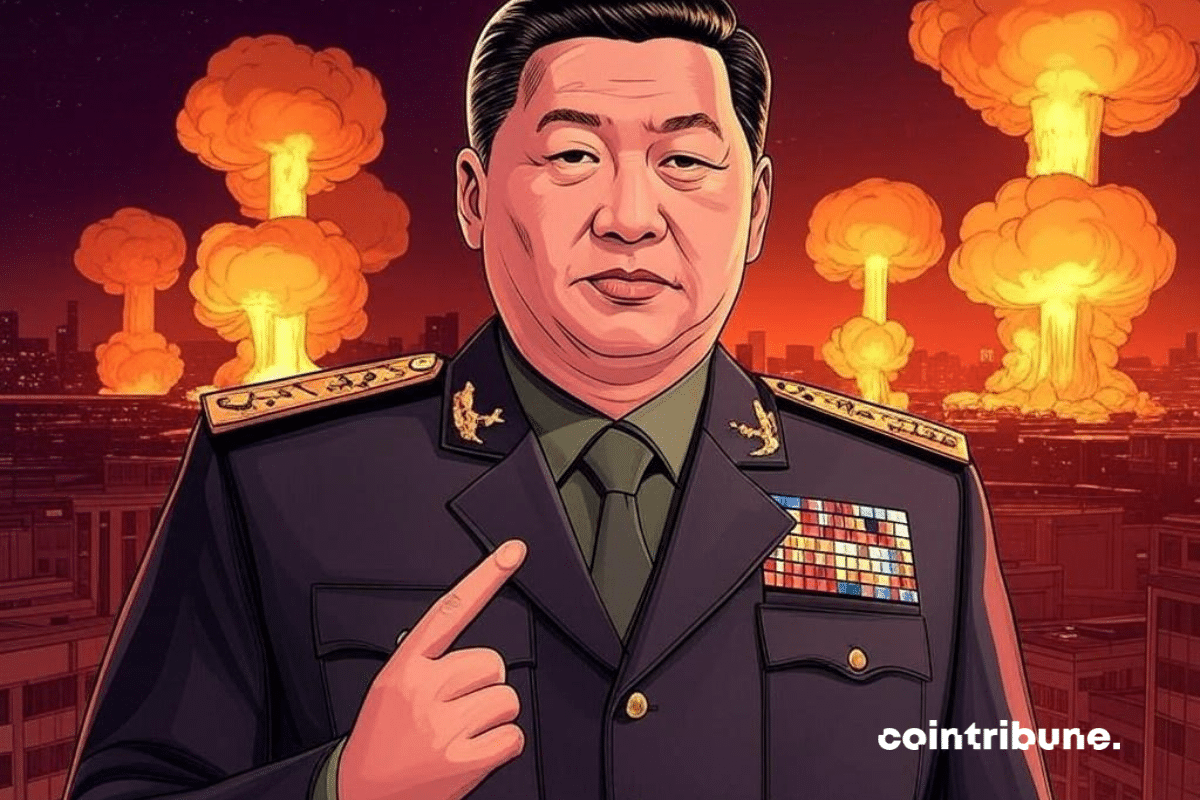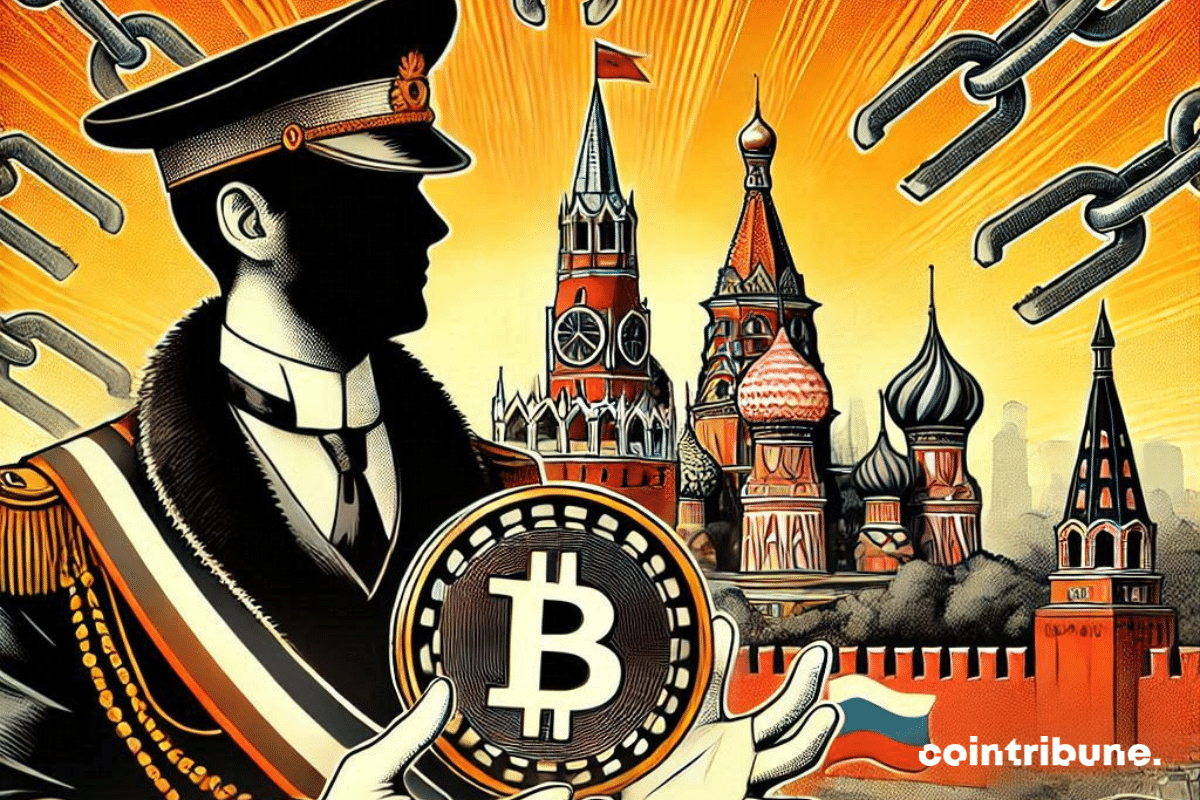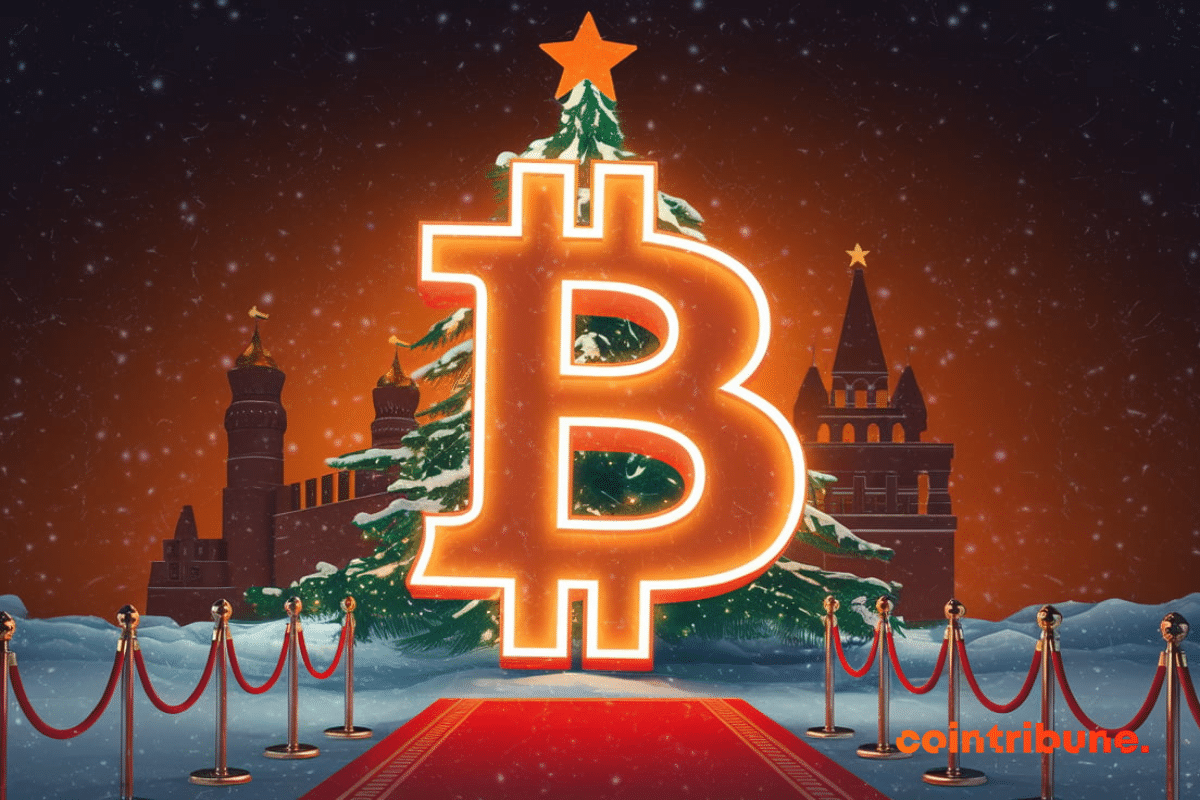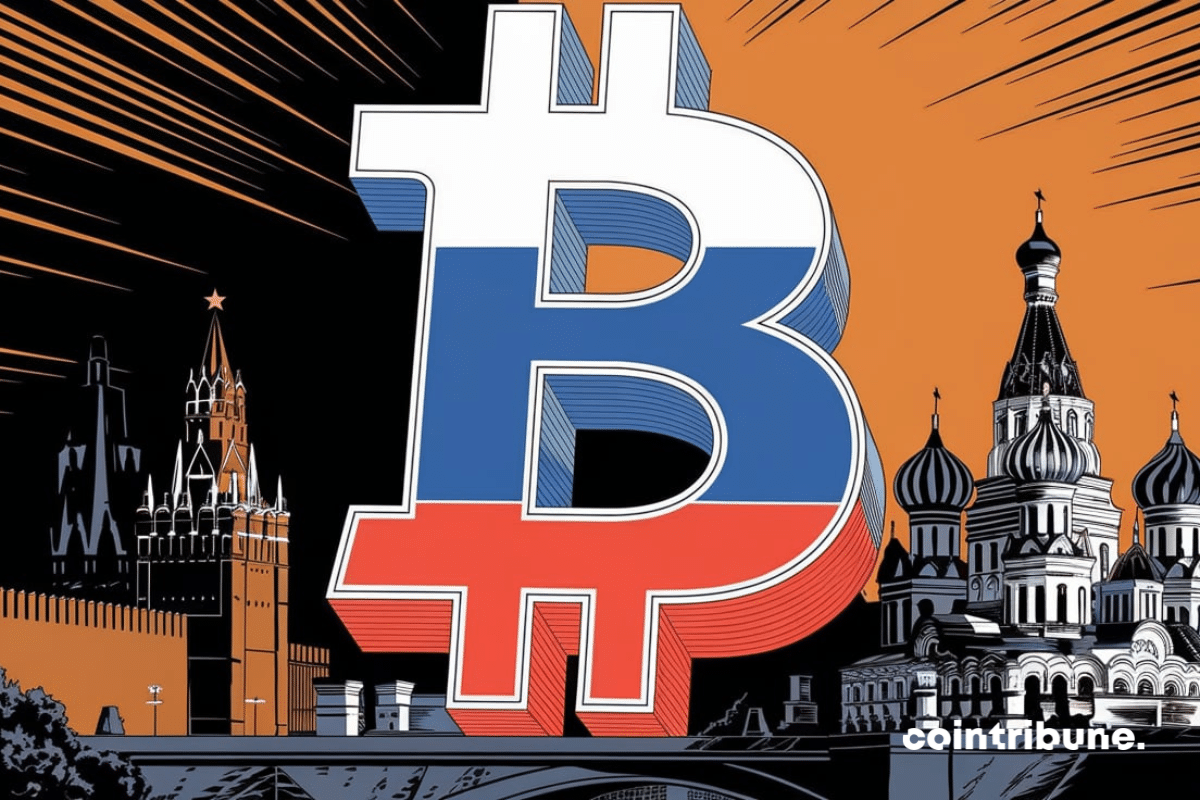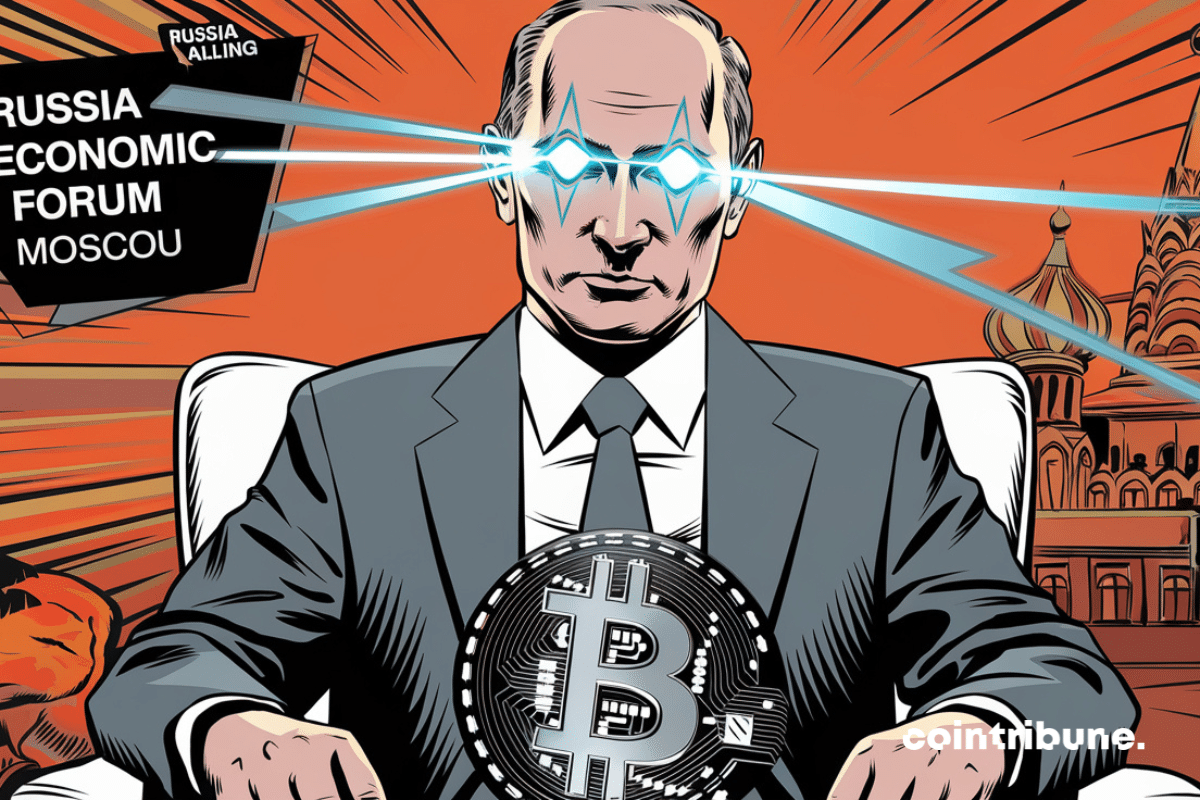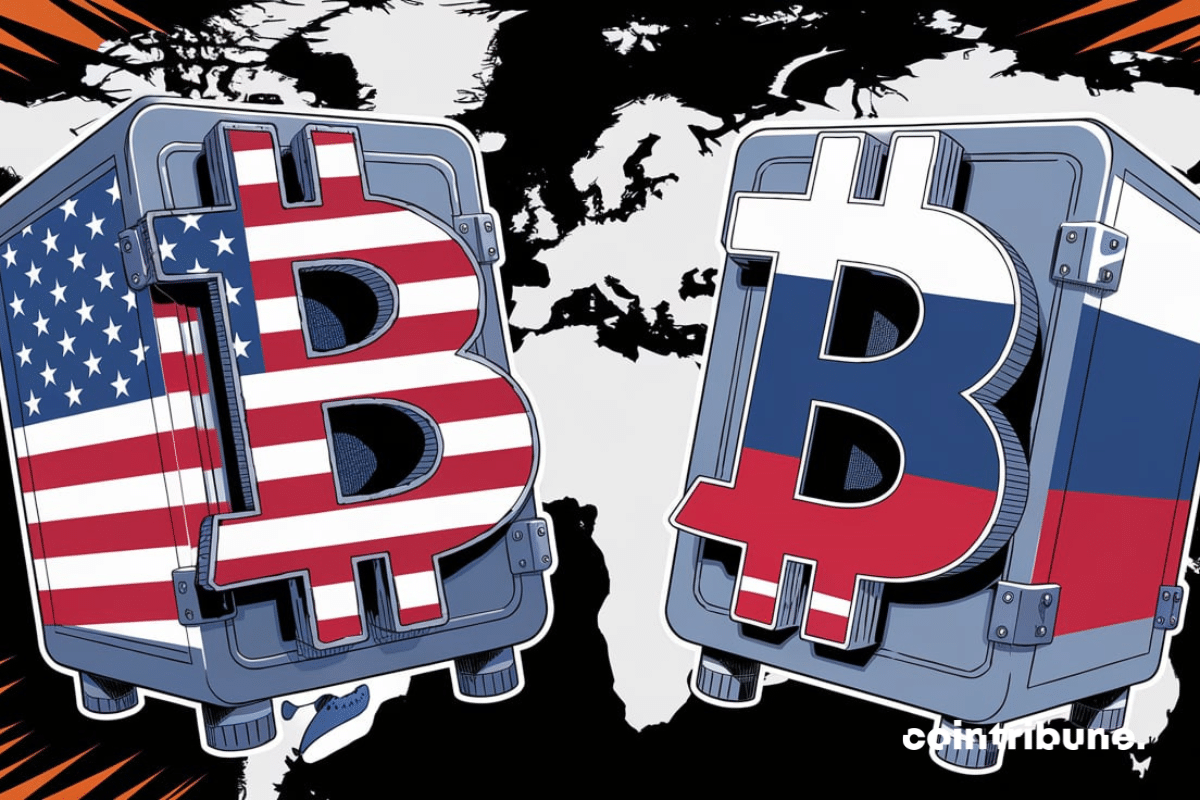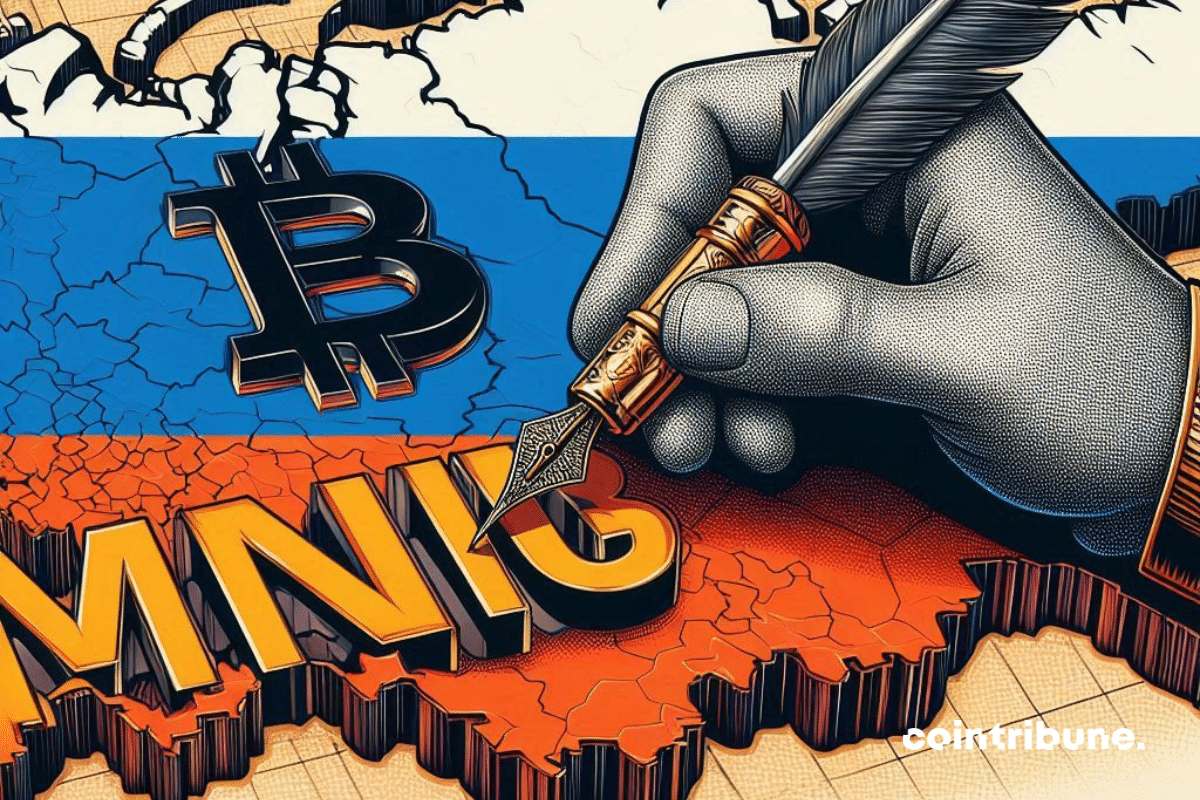Russia no longer tests. It imposes. By decreeing the mandatory integration of the digital ruble into the national banking and commercial system, Moscow leaves no room for doubt. The transition to a controlled, programmable, and centralized currency is underway. Gone are the ambiguities of experimentation, making way for the architecture of an unprecedented monetary system where each transaction could, tomorrow, be traced, regulated... or even blocked. This choice is not merely technological: it is political, strategic, almost ideological. For behind the apparent modernization of payments lies a much larger game.
Russie
For two years, Russia has been showing an economic growth of over 4%, a figure that could pale in comparison to many European economies. Yet, behind these seemingly solid indicators, the reality on the ground is quite different: high inflation, degraded consumption, persistent shortages. The country, largely transformed into a "war economy", seems to be reaching the limits of a model based on military spending and energy rents.
Russia's largest bank reaches a historic milestone by offering structured bonds backed by Bitcoin. This initiative by Sberbank is part of a broader strategy by Moscow to circumvent Western sanctions.
As the conflict in Ukraine reaches a critical juncture, Kyiv and its Western allies are proposing a comprehensive, unconditional ceasefire for 30 days. Supported by Washington and major European capitals, this initiative aims to create a pathway for negotiations. However, beyond the call for a truce, one question looms: will Moscow see this as a genuine hand extended or a tactical maneuver concealing a strategic advantage for Ukraine? The answer could reshape the balance of power diplomatically.
The Russian Ministry of Finance is exploring the possibility of developing its own stablecoin. This comes after recent U.S. sanctions and actions by Tether, which blocked wallets linked to the Garantex exchange. This initiative primarily aims to avoid dependency risks associated with foreign stablecoins, such as USDT.
In light of the deadlock in the conflict in Ukraine, Donald Trump is changing his tone and threatening Moscow with an economic sledgehammer. The American president, who has so far been measured towards the Kremlin, is now brandishing the card of tariff sanctions on Russian oil. The stated objective is indeed to force Vladimir Putin to move towards a ceasefire. A shocking statement that fractures diplomatic balances and elicits reactions even in European capitals, at a time when the slightest tension can redefine the global geopolitical chessboard.
Russia is at a major economic turning point, burdened by surging military expenditures and an escalating energy crisis. As financial resources dwindle, the cost of the conflict in Ukraine becomes unsustainable. By 2025, rising military spending and falling energy revenues will confront the country with an unprecedented economic challenge.
The USA-Ukraine summit was recently held in Riyadh and resulted in more ambitious ceasefire proposals than expected. "The ball is now in Russia's court" has become the American talking point on this issue. Meanwhile, Europe appears to be accelerating its military reassertion in an increasingly tense geopolitical context.
Moscow is stepping up now that Washington has embraced bitcoin. Soon a Russian strategic reserve?
As cryptocurrencies divide global geopolitics, Russia is carving a unique path. Vladimir Putin, while acknowledging the intangibility of bitcoin, categorically refuses its integration into national reserves. This position contrasts with that of Donald Trump, a fervent advocate of a crypto-sovereign America. Between technological fascination and strategic caution, Moscow plays a subtle balance on the digital chessboard.
Donald Trump unveils his radical strategy to counter the monetary ambitions of the BRICS. In response to their proposal for a common currency, he threatens to impose 100% tariffs against any country that adopts it. This tough approach masks secret negotiations that could reshape the global monetary order.
In a world where energy shapes geopolitical power dynamics, the crisis plaguing Gazprom reveals the fractures of a once-unshakeable giant. A pillar of the Russian economy and a strategic instrument of the Kremlin, the company is facing a brutal decline in its revenues, exacerbated by the loss of its European markets and international sanctions. Now forced to cut its workforce in a historic manner, Gazprom finds itself at a decisive stage, where its strategic choices will determine not only its future but also that of the Russian economy.
Global economic relations are evolving under the influence of geopolitical tensions and the strategic repositioning of major powers. In this context, China and Russia are strengthening their trade partnership, which is set to reach a historical record of 240 billion euros in 2024. This growth illustrates a strategic rapprochement bolstered by Western sanctions against Moscow and Beijing's desire to expand its influence. More than just an economic alliance, this cooperation sends a clear signal to the United States and the European Union, which aim to limit their dominance on the global stage. Thus, the surge in trade flows, increased use of the yuan in transactions, and the restructuring of international financial circuits now raise the question of the long-term consequences of this Sino-Russian agreement.
The Bank of Russia has recently introduced new regulations aimed at enhancing the oversight of currency exchange operations involving digital rights. These rights, as defined by Russian law, include electronic records such as cryptocurrencies, tokenized securities, and digital tokens. This initiative aims to integrate digital assets into the traditional financial system while ensuring financial stability.
Taiwanese youth are enjoying life as if nothing were happening. Yet, the threat of a Chinese invasion has never been more present. And when the Chinese Communist Party launches the offensive, we will officially enter a 3rd world war.
Under the shadow of sanctions, Moscow embraces Bitcoin, the digital gold. Siluanov dreams of free exchanges and a digital empire free from the dollar's grip.
As Europe slowly becomes aware of its lag, Russian bitcoin miners are anticipating large investments from the BRICS.
After the United States and Brazil, it is now Russia's turn to consider integrating bitcoin into its foreign exchange reserves!
The Syrian regime of Bashar al-Assad is on the verge of collapsing after 13 years of civil war, and it changes absolutely everything!
While gold still has fervent supporters, game theory no longer favors it in light of the emergence of Bitcoin as a store of value.
The Russian president finally uttered the word "Bitcoin" during the Moscow Economic Forum. A day to be marked in white stone.
The crypto market in Russia will reach 10 trillion rubles by 2026! Here is the element that will change everything.
The Russian government has stepped into the bitcoin industry. This support is likely not unrelated to the ambition of bringing about a fairer international monetary system.
The extent of the fine imposed on Google by Russia leaves the world speechless. For the first time, a sanction with 36 zeros falls on a tech giant, defying all known economic measures. This insane amount, which far exceeds the global GDP, marks an unprecedented step in the war for digital sovereignty. Through this unprecedented penalty, Russia denounces the removal of Russian accounts and media channels by Google on its YouTube platform, an action it sees as a direct encroachment on its media sovereignty.
In Russia, it's no joke anymore: Putin is cracking down on crypto mining with strict rules. No more tranquility.
Despite increasing economic sanctions, Russia continues to find creative ways to circumvent Western bans. According to the CERA report, the Russian Federation sold nearly 2 billion dollars worth of oil to Western countries through intermediaries. This figure illustrates the ingenuity with which the Kremlin keeps its economy afloat despite the restrictions.
The new Western sanctions against Russia continue to expand their influence. This time, it is the Moscow-Ankara axis that is bearing the consequences. With billions of dollars in trade settlements at stake, the repercussions on exchanges between Russia and Turkey could be profound and lasting. In a context where Turkish banks are now under increased scrutiny from the United States, the future of transactions between these two economic giants is uncertain.
Bitcoin has taken on a new strategic dimension for Russia. In the face of economic sanctions imposed by the West, the country has found in cryptocurrency mining an unexpected lever to keep its economy afloat. With more than $3 billion mined in Bitcoin last year, Russia seems to have found…
As Maduro seems to have orchestrated a massive election fraud to stay in power, Venezuela tragically marches towards total and imminent collapse.
The adoption of bitcoin as an international payment method by Russia marks a historical turning point. Facing Western sanctions and increasing economic pressure, Russia turns to bitcoin and other cryptos to circumvent financial hurdles. This decision, approved by the State Duma, offers a new perspective for Russian businesses looking to navigate through a severely restrictive economic context.
